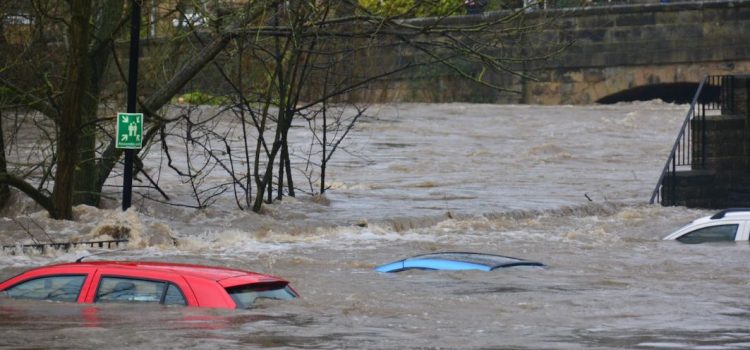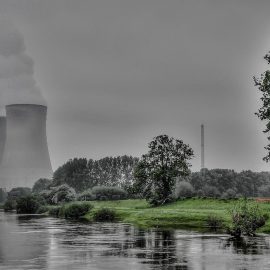
This is a free excerpt from one of Shortform’s Articles. We give you all the important information you need to know about current events and more.
Don't miss out on the whole story. Sign up for a free trial here .
What would happen if the AMOC collapsed? How could rising temperatures possibly affect the ocean’s currents? Why do some doubt the studies?
A recent scientific study suggests the Gulf Stream may slow or stop due to climate change, which would have dramatic effects on the world’s weather. However, some are skeptical that a collapse would happen in this century.
Here’s a look at what the AMOC is, what’s causing the collapse, and what it would mean for every person on Earth.
Disrupted Ocean Currents Threaten Global Weather Patterns
A study recently published in the scientific journal Nature suggests that climate change could cause an Atlantic Meridional Overturning Current (AMOC) collapse—a complex system of ocean currents of which the Gulf Stream is an important part—as soon as 2025. If that happens, it would cause changes in global weather patterns that would affect every person on Earth.
Background: The AMOC
The Atlantic Meridional Overturning Current (AMOC) is a series of currents in the Atlantic Ocean that constantly circulates the ocean’s water. Warm surface water flows northward toward the Arctic and freezes, leaving excess salt in the remaining water. That water, now denser because of the added salt, sinks. Deeper currents pull the cold water back southward, where it eventually warms up and rises to the surface again.
Ocean currents like the AMOC are essential for regulating global climate patterns. This is because the heat from the sun doesn’t hit the Earth evenly; it’s much warmer around the equator and colder at the poles. The circulating ocean currents redistribute some of that heat, carrying warm water toward the poles and cold water toward the equator.
How Could The AMOC Collapse?
Fresh water from melting ice, mainly from the Greenland ice sheet, is pouring into the ocean and diluting the salt water.
That freshwater dilution makes the seawater less dense, and therefore less likely to sink. The sinking water is a crucial part of the AMOC’s cycle, so if that process slows, then the whole system of currents becomes weaker.
In other words, you could think of the AMOC as a massive treadmill. It’s not possible to slow or stop just one part of a treadmill, because the entire belt moves as a single unit. Therefore, if something interferes with any part of the belt’s rotation, the entire treadmill slows down. If the circulation becomes too weak, it could disrupt the entire system of currents—the AMOC “collapse” that researchers warned of.
What Happens if the AMOC Collapses?
If the AMOC passes its tipping point and the currents become disrupted, the changes in climate and weather patterns will affect most of the world. A few of the predicted effects are:
- Rapid cooling of the northern hemisphere.
- Flooding and severe storms along the US East Coast.
- Reduced rainfall in much of Europe and North America.
- Changing monsoon patterns in South America and Africa.
- Widespread food shortages.
Scientific Skepticism
While the study’s findings are alarming, the chances of the AMOC collapsing within the next few years are very slim. Even one of the study’s authors, Professor Peter Ditlevsen, has said that it’s most likely to happen sometime between 2039 and 2070; the 2025 estimate was their worst-case scenario. Other scientists say the collapse may not even occur in this century.
However, the researchers and those who reviewed their study all agree that the study’s findings are disturbing, even if the exact timeline of an AMOC collapse is uncertain, and should prompt rapid action to cut greenhouse gas emissions.

Want to fast-track your learning? With Shortform, you’ll gain insights you won't find anywhere else .
Here's what you’ll get when you sign up for Shortform :
- Complicated ideas explained in simple and concise ways
- Smart analysis that connects what you’re reading to other key concepts
- Writing with zero fluff because we know how important your time is






